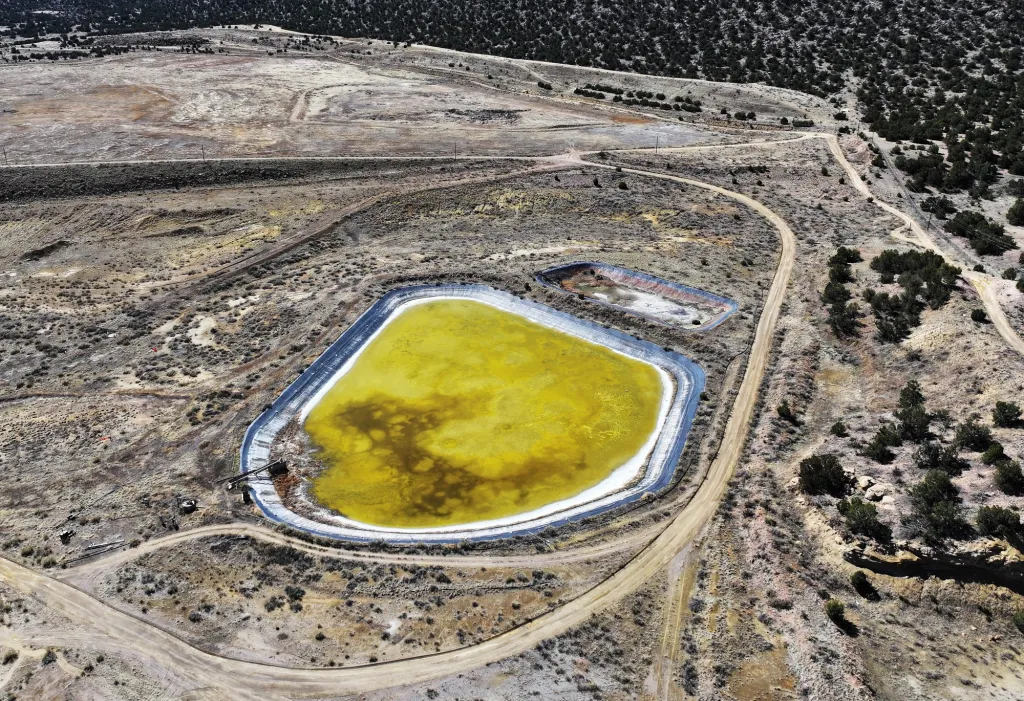Copyright Boulder Daily Camera

State regulators are seeking to strike a deal with a Colorado company that failed to meet its obligation to clean up one of the state’s most polluted sites — a settlement that local watchdogs say is a bailout for the now-insolvent company. The residents of Cañon City who have lived next to the defunct uranium mill say the amount the state is settling for is not nearly enough to cover the legally required decontamination of the site. About 5.8 million tons of radioactive waste sit at the former mill site, which covers 4 square miles south of Cañon City. If a judge accepts the state’s proposed agreement, the Superfund site’s owner, called Colorado Legacy Land, will pay $189,343 in past-due licensing and inspection fees plus a $3.3 million judgment. That’s in addition to the $22 million in bonds the company forfeited to the state when it failed to meet its obligations under the state’s Radiation Control Act. “That’s laughably inadequate,” said Travis Stills, one of the attorneys representing a longstanding group of Cañon City residents who have monitored the cleanup of the Superfund site, Colorado Citizens Against Toxic Waste. The state is missing an opportunity to obtain more money for the site cleanup and is instead letting the company off easy, he said. A 2013 estimate by a previous site owner put the price of the Cotter uranium mill’s cleanup at more than $890 million. Stills said the amount is now likely more than $1 billion after accounting for inflation. State regulators with the Colorado Department of Public Health and Environment in August sued Colorado Legacy Land in Fremont County District Court, alleging that the company was violating the Radiation Control Act. The law sets requirements for owners of radioactive waste, like checking that radiation detection equipment works and performing daily inspections of systems that keep contaminated soil and water from spreading outside the site. Colorado Legacy Land failed to meet many of its obligations beginning in 2023, the lawsuit states, when company leaders notified the CDPHE that they did not have the money to continue operations. The proposed settlement would relieve the company of its obligations under the Radiation Control Act while allowing the state to recoup the unpaid fees and the additional $3 million. Colorado Legacy Land and the site’s previous owner, Cotter Corporation, would still remain financially responsible for cleaning up the site under the separate federal Superfund law, wrote CDPHE spokesman Branden Ingersoll in emailed responses to questions from The Denver Post. The agency, which oversees the state’s radiation control program, declined an interview request. As the judge considers the settlement, Colorado Citizens Against Toxic Waste has filed a motion to intervene in the case. Deal avoids more litigation The settlement aims to avoid expensive and lengthy litigation, according to the proposed consent decree. The company also would agree never to operate any other business in Colorado that’s connected to radioactive materials. Any future profits the company makes from the sale or lease of the site would go to the state. If the settlement wins approval, the radioactive materials license connected to the site will be suspended. The CDPHE will continue to use Colorado Legacy Land’s forfeited bond money to make sure operations at the site comply with state radioactive materials law, Ingersoll said. But Stills says the proposed deal is a state-supported bailout of Colorado Legacy Land that leaves the community sidelined. “It’s just another bureaucratic stopgap that avoids the protections of state and federal law,” he said. “We’ve seen some shenanigans, but this really went to another level.” Colorado Citizens Against Toxic Waste is seeking to intervene in the Fremont County court case because the CDPHE does not represent its members’ interests, the group said in legal filings. Colorado Legacy Land is opposing the request. Community members were skeptical from the beginning about Colorado Legacy Land’s ability to pay for the cleanup, Stills said. The company took over the mill in 2018 when Cotter Corporation paid it to assume ownership and responsibility for the legally required cleanup. Colorado Legacy Land was created for the sole purpose of buying the mill, according to a news release announcing the deal. Its leaders promised swift action. Five years later, the new company ran out of money. Colorado Legacy Land alerted state and federal authorities on Feb. 15, 2023, that it would stop most operations at the site beginning March 1, 2023. The company was responsible not only for cleaning up the pollution but also for ongoing maintenance at the site. Earthen dams and a pump keep water that’s contaminated with uranium and molybdenum from leaking into Cañon City’s Lincoln Park neighborhood. Detection systems and on-site staff members monitor for leaks from the system and its pipes, which sometimes leak contaminated water into the ground. The CDPHE and the EPA took over operations at the site and returned the overall responsibility of the site to Cotter. Still no plan for cleanup The bankruptcy of Colorado Legacy Land set back long-term progress at the site. Forty years after the mill was declared a Superfund site, there is still no plan to clean up the radioactive waste that sits just outside of town. A Superfund site must undergo five steps between being listed as a Superfund site and its removal from the list of the nation’s most polluted places. The Cotter site is on Step 1 — assessing the nature and extent of the contamination and how it might harm human and environmental health. Colorado Legacy Land drafted a work plan to conduct a remedial investigation and a feasibility study — a key step in the Superfund process toward cleaning up the site. But just before the 2023 bankruptcy announcement, state and federal regulators had deemed the plan insufficient. That meant Cotter needed to start from scratch on a new work plan for the site. At a September meeting about the site with state and federal officials, community members expressed frustration with the delay caused by Colorado Legacy Land’s insolvency. “It’s a very long passage of time trying to get this rectified, (with) what CLL did to this community,” said Emily Tracy, who chairs the site’s community advisory group. “They spent some unknown amount of money for five years and then walked away. So here we are, two and a half years later from when they walked away, still dealing with what they didn’t do, what they were supposed to do — still dealing with the financial issues.”



